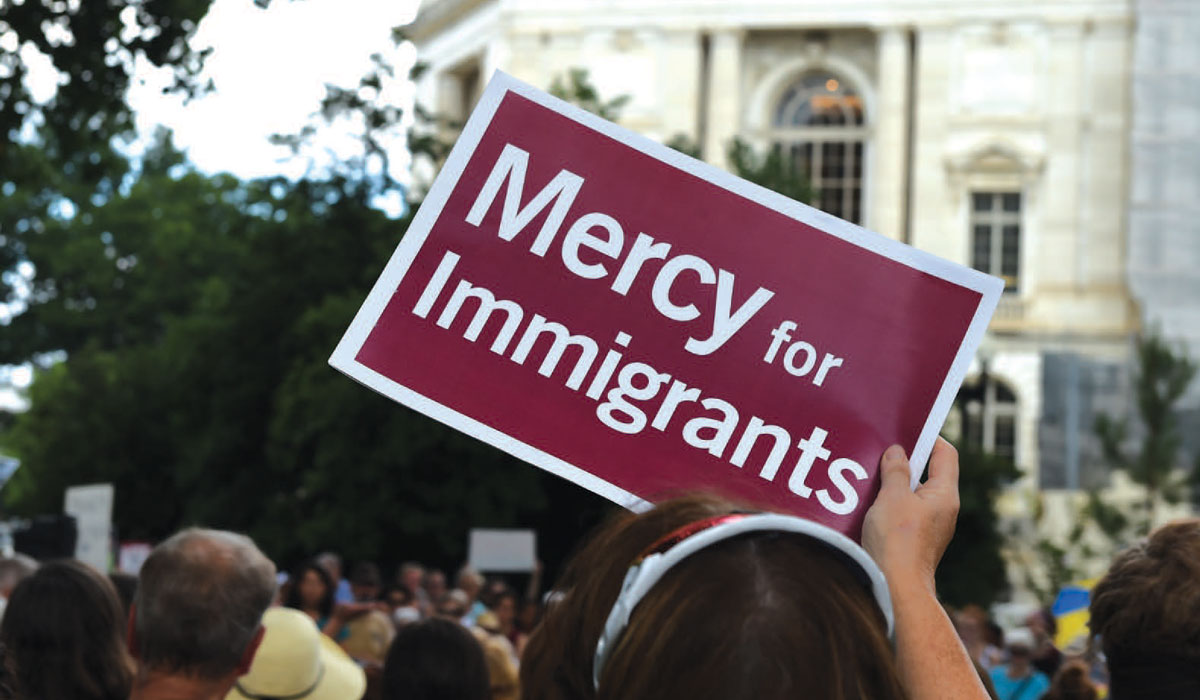
By John Garvey, President
CatholicU, Spring 2020
I don’t know who named the DREAM Act. It’s an inspired name for the legislation that seeks to recognize undocumented youth as legal residents in our nation. DREAM is an acronym for Development, Relief, and Education for Alien Minors, and the DREAM Act was first introduced in 2001 by Utah’s Republican Senator Orrin Hatch.
The legislation began a movement. We began to refer to all immigrants who came to the United States before their 18th birthdays as DREAMers. Our best guess is that there are some 3.6 million DREAMers living in the United States. They dream of something most of us take for granted: citizenship in the country they call home. Sometimes it’s the only country they remember.
Ten versions of the DREAM Act have been introduced in Congress over the last 19 years. All failed to get the necessary votes to pass both houses, despite widespread bipartisan and popular support. Gallup polls from 2010 onward reveal growing support for the main pillars of the DREAM Act. In 2016, 84% of respondents expressed support for the legislation.
DACA is a related acronym. It stands for Deferred Action for Childhood Arrivals. President Barack Obama introduced the DACA program by executive order in 2012. This stop-gap measure (renewed from time to time) did not provide a path to citizenship or permanent residency, but it did protect against deportation for two years, and allowed participants to work legally and obtain a driver’s license. Though not perfect, it was a welcome relief for those who qualified. A small dream come true.
In 2017, President Donald Trump announced he would end DACA because, he judged, it was “unlawful and unconstitutional and cannot be successfully defended in court.” That decision was contested, and in November the legal challenges arrived at the U.S. Supreme Court.
Whichever way the Supreme Court ultimately decides, it’s important to remember that DACA is only a temporary, partial solution. The 800,000 participants in DACA represent a mere 22% of the 3.6 million undocumented immigrants who arrived in the United States as children and teenagers. The rest either didn’t qualify, didn’t apply, or couldn’t afford the fees. And DREAMers account for only 33% of the estimated 11.3 million undocumented immigrants living in our country, including the siblings, parents, and grandparents of DREAMers.
The Catholic University of America supports DACA students, and it supports the DREAM Act, but it is also committed to a much bigger dream. In his message for the 2019 World Day of Migrants and Refugees, Pope Francis reminded us that immigration isn’t “just about migrants: it is about our humanity.”
The presence of migrants and refugees — and of vulnerable people in general — is an invitation to recover some of those essential dimensions of our Christian existence and our humanity that risk being overlooked in a prosperous society. … When we show concern for them, we also show concern for ourselves, for everyone; in taking care of them, we all grow.
Pope Francis wrote that the Christian response to migrants boils down to four words: “welcome, protect, promote, and integrate.” To that end, Catholic University has dedicated various resources on campus to assist every member of our community facing issues connected with their immigration status, including Campus Ministry, the Office of Student Affairs — in particular the Center for Cultural Engagement — the Immigrant and Refugee Advocacy Clinic of our Columbus School of Law, and our General Counsel, just to name a few. We have created a bilingual resource page on our website with information about the many campus and community organizations dedicated to lending a hand or extending a heartfelt welcome to migrants.
I hope all of us will work together to do more to support the immigrants in our midst and, to borrow from Pope Francis once more, “build a world that is more and more in accord with God’s plan” on our campus, and in our nation. In my book, a bigger dream simply doesn’t exist.
To learn more about Catholic University’s resources for Immigrants, visit https://ministry.catholic.edu/about-us/info-for-immigrants/index.html.
